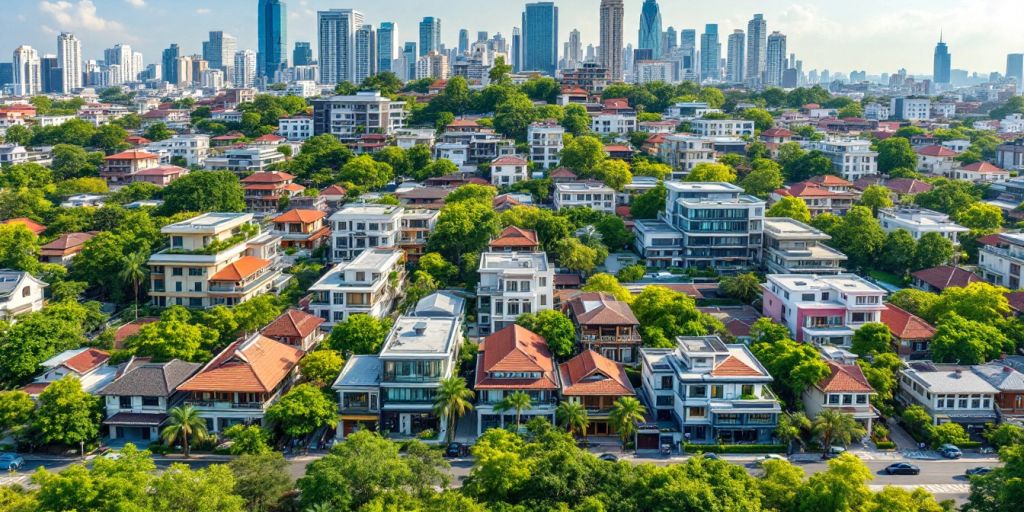The Thai government has recently approved significant changes to property policies aimed at boosting foreign investment in the real estate sector. These measures include extending leasehold periods for foreigners and increasing the foreign ownership cap in condominium projects, which are expected to rejuvenate the market amidst declining local purchasing power.
Key Takeaways
- The foreign ownership ratio in condominium projects has been increased from 49% to 75%.
- Leasehold periods for foreigners have been extended from 30 years to 99 years.
- The policy aims to attract foreign investors, including digital nomads and multinational executives.
- The changes are a response to a significant rise in unsold housing units in Thailand.
New Policies To Attract Foreign Investment
The Thai Cabinet’s decision to amend property policies is a strategic move to attract foreign capital into the real estate market. The increase in the foreign ownership ratio from 49% to 75% allows foreign investors to have a more substantial stake in condominium developments, making Thailand a more appealing destination for property investment.
Additionally, extending leasehold periods from 30 years to 99 years provides foreign investors with greater security and stability, encouraging long-term investments in the country. This change is particularly significant for expatriates and digital nomads looking for stable living arrangements in Thailand.
Addressing Market Challenges
The new policies come in response to a notable decline in purchasing power among Thai consumers, exacerbated by stricter loan criteria imposed by banks. As of the first quarter of this year, there were over 213,000 unsold housing units, valued at approximately 1.21 trillion baht, marking a 36.5% increase from the previous year.
The Real Estate Information Centre (REIC) has highlighted the urgency of these measures, suggesting that they could help alleviate the current market slump and stimulate demand. By attracting foreign buyers, the government hopes to reduce the oversupply of housing and revitalise the property sector.
Potential Impact on the Real Estate Market
The proposed changes are expected to have several positive effects on the Thai real estate market:
- Increased Foreign Investment: By allowing a higher percentage of foreign ownership, Thailand can attract more international investors, boosting the economy.
- Market Revitalisation: The influx of foreign capital could help reduce the number of unsold units and stimulate new construction projects.
- Enhanced Competitiveness: These measures position Thailand as a competitive player in the global real estate market, appealing to foreign buyers seeking investment opportunities.
- Long-Term Residence Options: The extended leasehold periods provide foreigners with more options for long-term living arrangements, making Thailand an attractive destination for expatriates.
Future Outlook
Industry experts are optimistic about the potential recovery of the property market within the next few months. Factors such as government investment projects, the upcoming tourism high season, and initiatives like the digital wallet handout scheme are expected to contribute to economic growth.
The Thai government’s proactive approach to reforming property policies demonstrates its commitment to fostering a robust real estate market. By enhancing the attractiveness of Thailand for foreign investors, these changes could lead to a more dynamic and sustainable property sector in the years to come.
Sources
- Thai Cabinet Approves New Property Policy for Foreigners – Thailand Business News, Thailand Business News.
- Habitat Group’s Visionary CEO Pioneers Innovative and Sustainable Real Estate in Thailand’s Evolving Market | Property | DDproperty.com, DDproperty.
- Raising the Cap on Foreign Condo Ownership: A Potential Game-Changer? – Thailand Business News, Thailand Business News.




